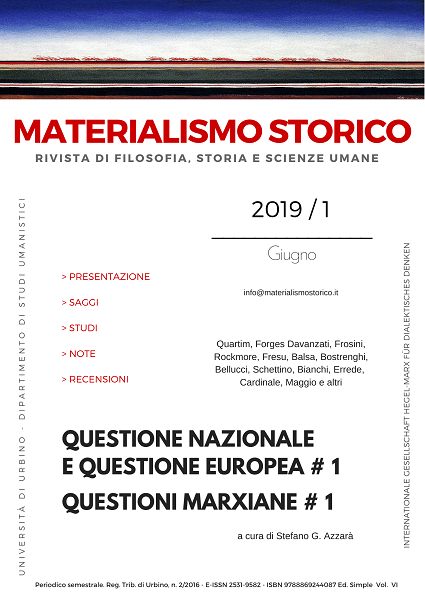Abstract
The purpose of this contribution is to ask whether the world of today can be analysed in terms of hegemony. Firstly, the main features of hegemony in the 19th century, during the period between the two wars and in the post-war period up to the 1970s, are illustrated. Secondly, the elements that allow us to speak, in the nineteenth and twentieth centuries, of a “passive revolution” are described. And finally, the model known as Neoliberalism is compared to these notions. The conclusion is that, though much more restricted in its ambitions, Neoliberalism can ultimately be said “hegemonic” because it tries to articulate the main elements of the hegemonic discourse, despite the fact that the terrain has changed: no longer the national State but the international field of the new “cosmopolitical” bourgeoisie.
Hegemony; Passive Revolution; Neoliberalism; Gramsci.
L'opera è pubblicata sotto Licenza Creative Commons - Attribution-NonCommercial-NoDerivatives 4.0 International (CC BY-NC-ND 4.0) che permette ad altri di condividere l'opera indicando la paternità intellettuale e la prima pubblicazione su questa rivista.
Gli autori mantengono i diritti sulla loro opera e cedono alla rivista il diritto di prima pubblicazione
